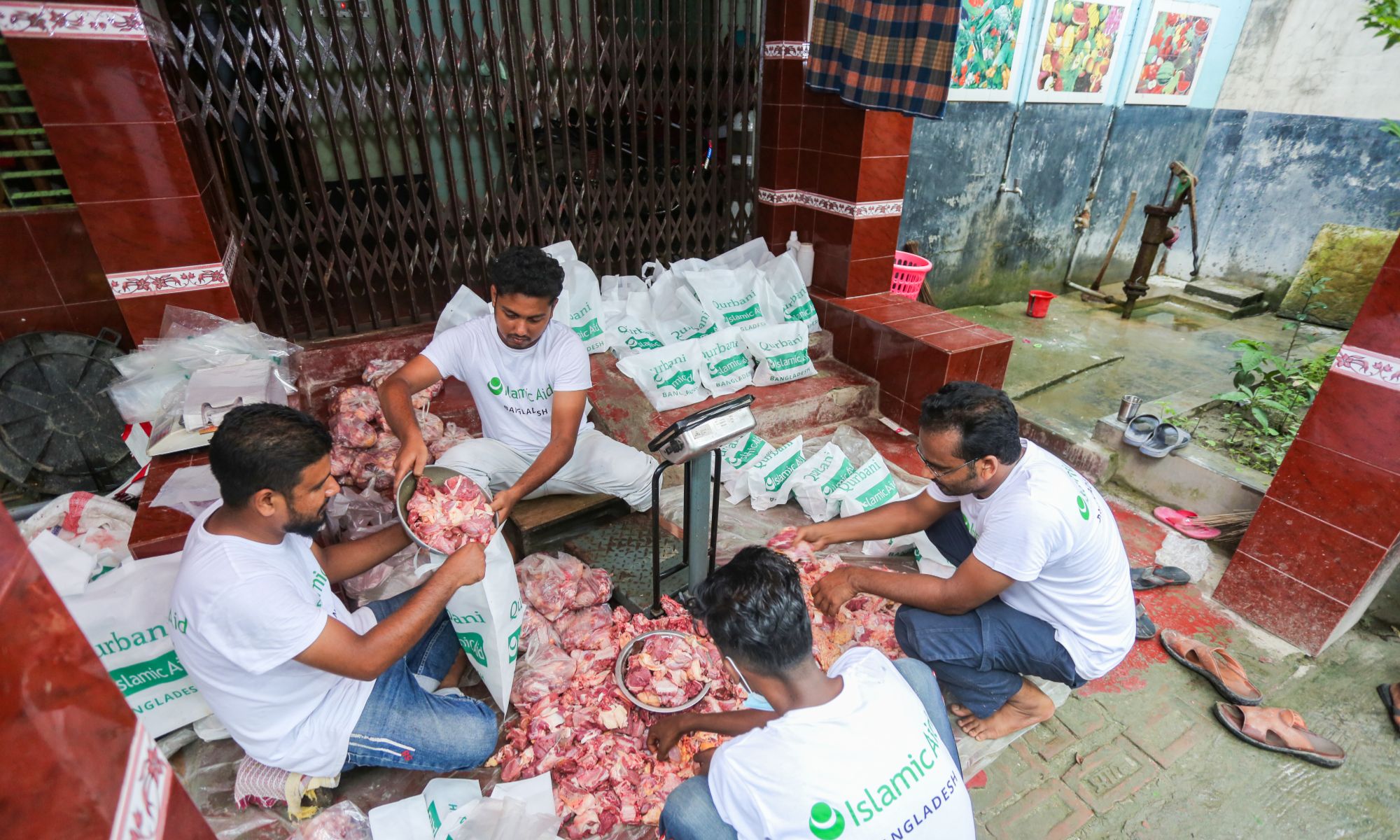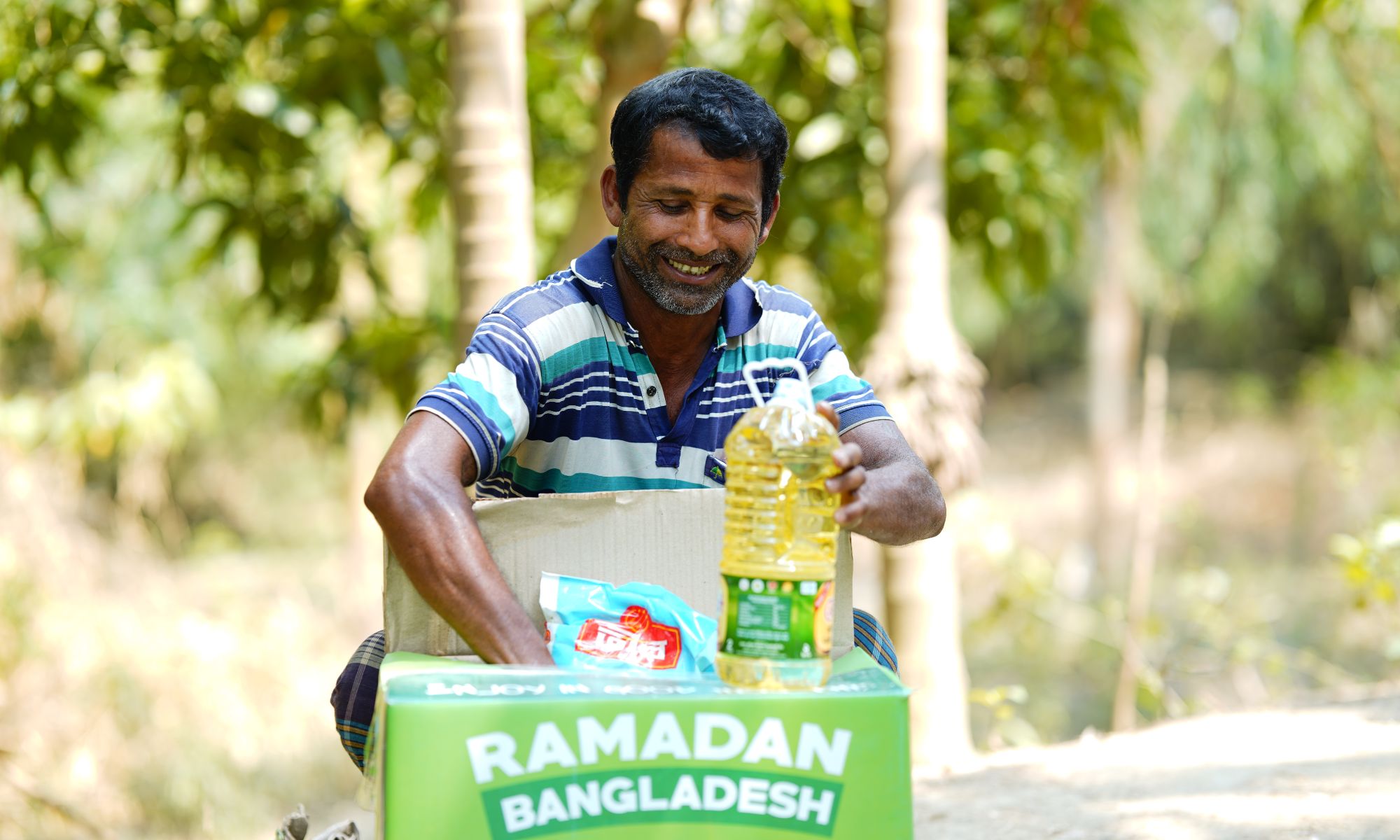Our seasonal projects focus on serving communities living in poverty, both Muslim and non-Muslim. Under this program there are three projects like:
- Winter cloth distribution
- Ramadan food distribution
- Qurban project
- In-kind Gift distribution
SAWAB has been implemented all these projects to reduce the suffering of poor people including Rohingya refugees with sponsor and donation from HHRD-USA, NAHAR-USA, Hayrat Foundation – Turkey, Islamic Aid-UK, Muslim Global Relief-UK and Global Peace Mission-Malaysia. In 2019, we have implemented these projects in Bogra, Pabna, Khulna, Satkhira, Kurigram, Netrokona, Sirajganj, Gaibandha and Cox’s Bazar district.
Winter Cloth Distribution Project
Winter season in Bangladesh cold air follows, sometime temperature level decreasing up to 3°C to 4°C and generally average temperature of here in winter is 10°C to 20°C. January and February are generally coldest month of the season. This season some problems also facing especially health related problem about old man and children.
A cold wave is sweeping over the northern, the north-eastern and the western parts of Bangladesh of Bangladesh, disrupting normal life and causing suffering to people. The districts of Chuadanga, Dinajpur, Panchagarh, Rajshahi, Pabna, Naogaon, Nilphamari, Jessore, Cox’s Bazar and Kurigram are mainly experiencing the cold waves with biting cold during the winter season. Considering this intolerable sufferings and pains of the underprivileged and vulnerable people in Bangladesh, every year SAWAB is expanding the volume of this project.
As in previous year, in Cox’s Bazar, Thakurgaon, Kurigram, Sirajganj, Chittagong, Khulna, Sunamganj, Pabna and Gaibandah district a total of 13,349 blankets and warm cloth were provided to the cold-hit poor people among them were Rohingya refugees.
Ramadan food distribution project
Ramadan is a month-long religious festival celebrated in all over Muslims countries as well as in Bangladesh that culminates in the very important holiday of Eid-ul-Fitr. During the Ramadan period, the underprivileged people of remote areas in Bangladesh are not able to buy their daily essentials to mitigate their diet.
Every year SAWAB provides food packages to widows, orphans and poor families in the month of Ramadan. This project has been implemented in the most deserving areas of Bangladesh. In 2019, 6,444 food packages containing with rice-10 kg, potato-2 kg, dates-1 kg, pulse-2 kg, salt-1 kg, cooking oil-1 litre, sugar-1 kg, onion-1 kg, garlic-500 gm, spices (chili-200 gm, turmeric-200 gm, coriander-100 gm)-500 gm were distributed among 3,484 poor, deserving and miserable families which covered approximately 32,100 people to afford Sahri and Iftar during Ramadan and in the day of Eid-Ul-Fitr.

Qurban Project
The festival of Eid-ul-Adha marks the end of the sacred Hajj pilgrimage. Muslims around the world commemorate the obedience of the Prophet Ibrahim (PBUH) by sacrificing an animal and distributing the meat to the poor and those in need. Each year, SAWAB with the sponsor of different international donor and partners helps Muslims carry out Qurbani on their behalf. Last three year, SAWAB distributed over 8,537 packs Qurbani meat, benefitting over 46,647 individuals. We were able to deliver in 8 districts, helping to spread a feeling of solidarity among Muslims of Bangladesh and Forcibly Displaced Myanmar Nationals (FDMNs) from Myanmar who are living in Bangladesh.
In-kind gifts Distribution Project
Aiming to support the most vulnerable and affected group Forcibly Displaced Myanmar Nationals (FDMNs), i.e. Rakhines, SAWAB, with the kind contribution of HHRD-USA, has been implementing this project since 2018. In 2019, we have been able to receive In-kind gifts of 20 containers from our esteemed donor organization. Throughout the year, we have distributed 53,600 packs In-Kind Gifts among 53,600 Rohingya refugees and local families who are badly affected due to influx of Rohingya refugees which benefitted around 268,000 individuals which included clothe (man, woman & children), blanket, bedding, educational stationery (note book, pencil, pen), kitchen equipment, bucket, dry food and hygiene kits. The gifts were sufficient for them to maintain their daily life and protect them from any harsh environmental conditions.


